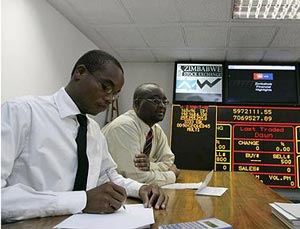
Africa is experiencing a rapid rate of economic growth —supported by urbanisation, reconstruction, discovery of precious resources (like natural gas) and industrialisation.
In 2001, The Economist branded Africa “the Dark Continent” but that sentiment has changed. The same publication in 2013 saw the continent as “Africa Rising”. Despite pockets of instability, Africa has been making major strides in the development of its institutions, with a growing number of stable, healthy democracies that have transitioned to new governing parties.
Economic growth rates are staggering. The Economist (2013), notes that over the past 10 years, real income per person grew by more than 30%, in comparison to the 10% shrink over the previous 20 years. Africa is the world’s fastest growing continent at the moment and growth is expected to be north of 5% over the next decade. Africa is the second largest continent in the world by landmass and by population with 1,3 billion people (17% of the world’s population) who are spread over 54 countries. There is a growing interest by the global village towards Africa’s frontier markets, all in search for higher returns and diversification opportunities.
This growing interest for African investment opportunities has extended to Africa’s capital markets. This has driven a proliferation of stock exchanges across the continent, with countries such as Mozambique, Uganda and Tanzania setting up their own exchanges. There are now 29 stock exchanges in operation on the continent. African Securities Exchanges Association (ASEA) lists 21 African exchanges as its members. The exchanges on the continent differ in terms of market depth and sophistication: from Uganda’s Securities Exchange, with an outcry auction system, to the South African’s Johannesburg Stock Exchange, which is amongst the top 20 largest stock exchanges in the world and the most sophisticated on the continent.
Many of the continent’s exchanges are implementing trading systems automation, adopting globally accepted listing rules to encourage more listings, and improving their data collection to be able to provide live securities trading data.
Simultaneously, their governments are improving investor protection laws and regulations as well as corporate legal environments. The objective is to attract global foreign portfolio inflows — and the capital is flowing in especially with excess liquidity in the developed markets on the back of quantitative easing programmes. While most regulatory environments are relaxing their restrictions on capital flows, portfolio investment in Africa’s markets, particularly those lower on the sophistication scale, is exceptionally difficult. Trading costs are still high and securities trading volume is still low.
The continent’s stock exchanges are still small when compared to other markets in the context of the global markets. World Federation of Exchanges (WFE) statistics show that of the 2010 $56,8 trillion world market exchanges capitalisation, only $1 trillion was accounted for by African exchanges. With a market capitalisation of $925 billion (2010), JSE accounted for virtually all of the African market capitalisation.
The key challenges facing investors on the continent include scarcity of information, brief company operating histories, asynchronous data and limited market depth. Most markets still do not provide data to global information vendors like Reuters and Bloomberg. Our experiences in some markets point to difficulty in obtaining information from companies to support fundamental research. In some markets, a simple task of obtaining the latest company financial reports is a pain in the neck, with some financials only being made available many months after year end. Limited information availability creates a huge information asymmetry which limits investors’ understanding and more often than not, stifles investor interest. While domestic investors tend to have a more “on-the-ground” understanding on domestic companies, limited information is of particular concern for international investors.
- Chamisa under fire over US$120K donation
- Mavhunga puts DeMbare into Chibuku quarterfinals
- Pension funds bet on Cabora Bassa oilfields
- Councils defy govt fire tender directive
Keep Reading
The JSE, with more than 400 listed companies, is one of the top 20 exchanges in the world in terms of market capitalisation. What has made the JSE so successful? It is supported by a robust regulatory framework that supports product innovativeness and the necessary technological infrastructure. South Africa is currently ranked first in the world in terms of regulation of securities exchanges and second for raising capital through the local equity market according to World Economic Forum’s Global Competitiveness Survey for 2013-2014. About one fifth of the companies listed on its Main Board are dually listed, which increases the scope for market and investor interest.
The capital market in Zimbabwe revolves around the Zimbabwe Stock Exchange (ZSE), which was established in 1896, making it one of the oldest exchanges in Africa. Development of the local market will require investment in robust infrastructure, human capital, management of international investor perspectives on domestic issuances and facilitation of financing of real sectors through capital markets. A number of positive initiatives supportive of the local market development have been or are being put in place. These include the securities depository, automation of the trading system, revision of listing rules, and the proposed alternative exchange for SMEs.
The market still remains illiquid with trading concentrated among the top five counters — Delta, Econet, Innscor Africa, BATZ and Seedco. Similarly, foreign investor interest is also concentrated on the few top market cap stocks. With a total market cap of $4 billion, only 29% of GDP, there is scope for market deepening. For Zimbabwe, it all depends on policy and political certainty. The perception of outside investors is that Zimbabwe has the potential but needs to have political and policy certainty. Zimbabwe has to learn how to compete for the global capital coming into Africa and to make the country a sweet spot for investors. The Zimbabwe government has an important role to play in this regard. l Nesbert Ruwo (CFA) and Jotham Makarudze (CFA) are investment professionals based in South Africa. They can be contacted on [email protected]











